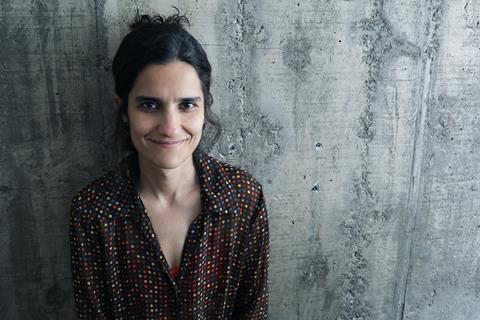
Twelve feature documentary projects and three research and criticism projects are being presented as part of Doclisboa’s Arche project development lab. It is running from October 19-25 as part of the festival’s industry arm Nebulae.
“Arche is such a specific development, creative and artistic programme,” explains Joana Cunha Ferreira, Nebulae co-ordinator. “We think these are the projects that will struggle the most to get financed. The money tends to go to things that are safe bets.”
Access to all that Nebulae offers will give the Arche filmmakers a boost.
“The main idea for making Arche part of Nebulae is that we give the projects from Arché the possibility to be seen, heard, felt by the decision makers who usually aren’t so attentive to such projects,” says Ferreira.
There are several projects from Brazil in the Arché selection, including Teachers’ Room from Alice Riff, The Scarlet Temple Oracle from Pedro Maia de Brito and Ralph Antunes and The Wall Of Sound by Leonardo da Rosa. The aim is to introduce them to European partners.
Marina Thomé, who coordinates the event alongside Ana Pereira, tells Screen why Arche, now in its ninth edition, is so important for kickstarting new productions by providing mentoring and a place for group thinking about cinema itself.
What are you looking for when selecting a project for Arche?
It’s a mix of everything, what the filmmaker does, the kind of project and the country they come from. When we receive the applications, it’s not just about the project. It’s about the filmmaker, the producer. They have to send all their last films. We watch all their previous films and so we have an idea what it [the new film] is going to be like.
This year, we received more than 350 project submissions.. More than 20 countries sent applications. Arché is a programme which works with creative documentaries and documentaries that have a unique point of view. We received projects about memory, territories and ways of seeing community….we [also] have a lot of filmmakers from Brazil and Argentina that live in Europe or are already connected to producers in Europe.
Which projects made a particular impression on you?
I really liked Rehearsal For Revolt from Pilar Monsell, a project from Spain. It’s a really feminist subject [about a group of women who reenact the Bread Riot of Cordoba in 1652.] I liked A Certain Civilisation from Leandro Listorti in Argentina. He is creating a really oneiric film.
From Portugal, we have Your Back Still Burns from Fábio Silva. This is a really special biographical project about the story of the director’s mother [and her experiences with her husband’s abuse and infidelities ]. In Cape Verde, it’s really common. You have polygamy - but just for the men. I think this is a really brave film. These three projects really touched me.
Do you have financing requirements for projects
No, We don’t have the thing that projects have to have 10%, 20% or 50% of the financing completed.
For us, it is really important that we have the mentoring part, a group thinking about cinema, thinking about documentary, thinking about the boundaries between the real and the connection between fiction and life.
What fresh initiatives are there this year?
We have a new award, the Doclisboa award, worth €5,000, for projects in the editing stage. We have a good balance between late development and some projects that are at the beginning of development but that we have a feeling about the concept, the treatment.
Tell us a little about the RAW programme and your partnership with Márgenes Film Festival in Spain.
After Doclisboa, six of the 15 projects will be part of an artistic residency at El Azahar, Trujillo, in Spain. Afterwards, they are going to Márgenes. They are going to be presenting their projects. They will have a lot of meetings with industry professionals. At Arché, we just have five days of mentoring. But if a project is at the beginning of its development, maybe it is too much to have the industry meetings in Márgenes. We are always trying to recognise if the projects need Arché or Arché RAW or if they need to spend more time with mentors















![[L-R]: Amanda Villavieja, Laia Casanovas, Yasmina Praderas](https://d1nslcd7m2225b.cloudfront.net/Pictures/274x183/6/4/1/1471641_pxl_20251224_103354743_618426_crop.jpg)








![[L-R]: Amanda Villavieja, Laia Casanovas, Yasmina Praderas](https://d1nslcd7m2225b.cloudfront.net/Pictures/100x67/6/4/1/1471641_pxl_20251224_103354743_618426_crop.jpg)
No comments yet